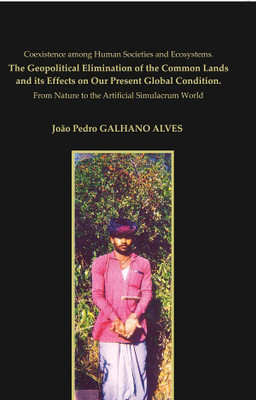Coexistence Among Human Societies And Ecosystems. The Geopolitical Elimination Of The Common Lands And Its Effects On Our Present Global Condition.(Paperback, Jo├Żo Pedro Galhano Alves)
Quick Overview
Product Price Comparison
About the Book: Professor Doctor and Writer Jo├Żo Pedro Galhano Alves lived in some of the rare regions of the Planet, in three continents, where human societies still coexist with ecosystems in state of total or high biodiversity. The comparation of these societies with the techno-industrial societies, in state of minimal biodiversity, lead him to formulate the analysis and concepts contained in this book.He shows the social and ecologic advantages of the traditional communitarian systems for the use of land and natural resources. He describes the geopolitical ways that conducted to their almost total elimination, and he analyses the effects, how humans evolved, to reach their present deplorable condition, of mass dependency, production and consummation. This study shows that the present global ecologic and socioeconomic crises need a change in the social systems of use and management of the territories and natural resources. About the Author: The author studies the coexistence among human societies and ecosystems that conserve Total or High Biodiversity. He studied the relationships among Gurjar Tribe herders, tigers and the large wild herbivores (India);The coexistence among rural societies, wolves and biodiversity (Portugal); and the relationships among Gourmantch├® Tribe, gather-hunters and agriculturalists,with the lion and biodiversity (Niger). He also studied land property systems, theelimination of the common lands and its effects in our present global condition. He made 12 years of Post-Doctorates in Anthropology and Ethnobiology (France, Spain and Portugal, simultaneously). He is Doctor in Anthropology (France); Master of Science of High Studies in agrarian policies and development administration (France); Post-UniversitarySpecialisation Diploma in Rural Development (France), and is Agricultural Engineer (Portugal). He travelled in many countries, from the USA to Myanmar, and from Polar Regions to the desert lands of the Sahara, always in close contact w

